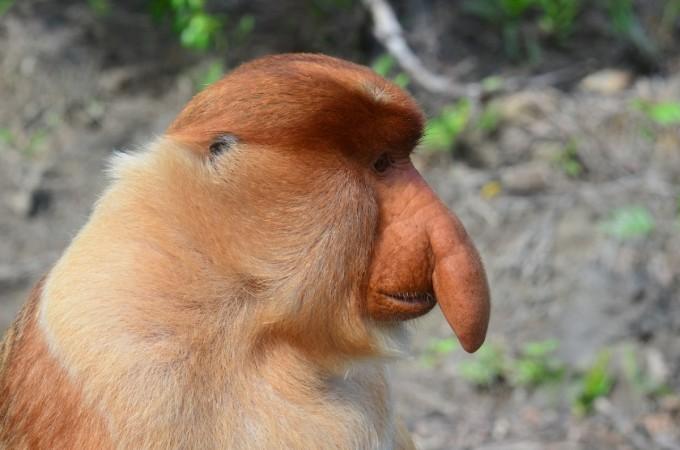
It turns out size does matter sometimes. The size of the enlarged, floppy nose of male proboscis monkeys has a unique role to play. Researchers have found that the size of their noses is directly linked to the number of females attracted to them.
A study published in the journal Science Advances claimed that the size of the monkeys' noses has evolved to show their physical strength and fertility.
The reason for the nose evolution was unclear for a long time. But researchers at Kyoto University's Primate Research Institute, Chubu University, and Cardiff University have finally solved the mystery.
They observed 18 wild proboscis monkeys from Southeast Asia. These include some free-range monkeys in Lower Kinabatangan Wildlife Sanctuary, located in Sabah, Borneo.
"Proboscis monkeys probably evolved to develop their noses into such a peculiar shape because they create a distinctive social structure by living in groups. We want to unravel the mystery of the evolution by studying their genome and hormones as well," said Ikki Matsuda, an associate professor of primatology at Chubu University.

According to the researchers, there are some significant correlations between nose, body, and testis sizes of the proboscis monkeys. They found "evidence supporting both male-male competition and female choice as causal factors in the evolution of enlarged male noses."
Sen Nathan, one of the scientists from the Sabah Wildlife Department and PhD student at Cardiff University and Danau Girang Field Centre, stated: "Although the unique nature of the 'odd-nosed' proboscis monkey has long been admired as an extremely attractive visual feature by biologists, explanations for its evolution have so far been gleaned more from folklore than from science."
The researchers also made minute observations of the monkey's behavior. They took body measurements and also recorded the vocalizations of proboscis monkeys at three different zoos in Japan, Singapore, and Sabah.
That's how they discovered that the nasal enlargement of the monkeys systematically modifies the resonance properties of male vocalizations.

















